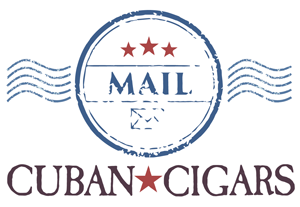-
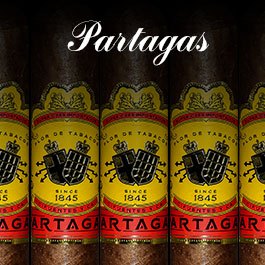
Partagas (12)
-
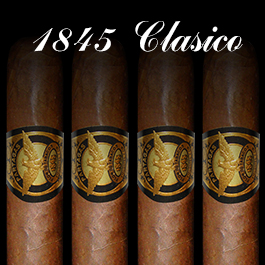
Partagas 1845 Clasico (4)
-
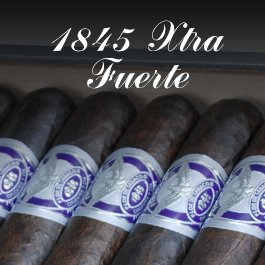
Partagas 1845 Extra Fuerte (4)
-
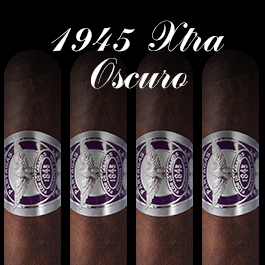
Partagas 1845 Extra Oscuro (4)
-
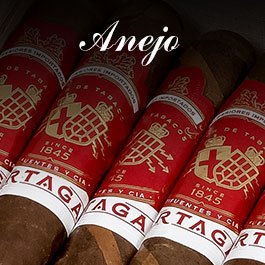
Partagas Anejo (2)
-
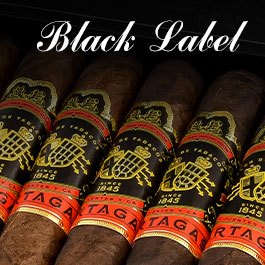
Partagas Black Label (8)
-
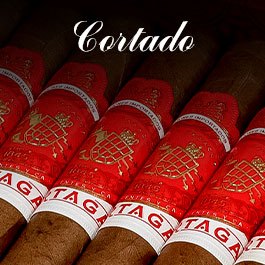
Partagas Cortado (5)
-
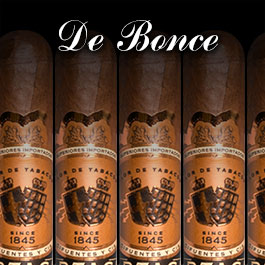
Partagas De Bronce (1)
-
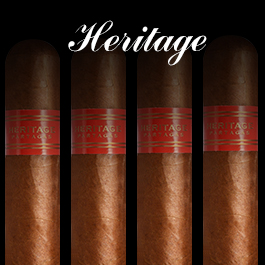
Partagas Heritage (4)
-
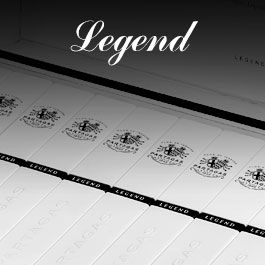
Partagas Legend (3)
-
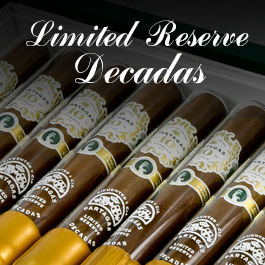
Partagas Limited Reserve Decadas (1)
-
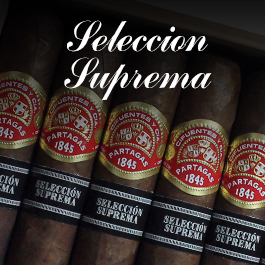
Partagas Seleccion Suprema (1)
-
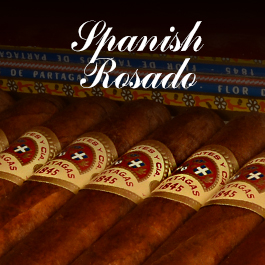
Partagas Spanish Rosado (1)
-
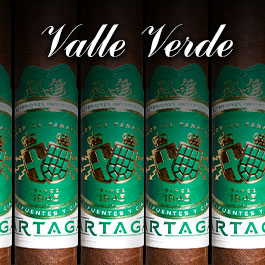
Partagas Valle Verde (3)
Partagas
Castro came into power, brilliant leadership and masterful blending rose Partagás to be the benchmark of exquisite flavor and uncompromising luxury within the eminent General Cigar Company family.
Partagás began with the gifted hands of a young Don Jaime Partagás y Rabell. At 14, in 1831, Don Jaime emigrated from Catalonia to Cuba and, under prominent innovators and founders within the tobacco industry, learned each step of the tobacco business: from cultivation to distribution. More importantly, as a torcedor Don Jaime mastered the fine art of blending tobacco and rolling premium cigars by hand.
Don Jaime’s skill, together with his indomitable drive, blossomed in 1845 when he founded Partagás Y COMPAÑÍA, and his own factory, La Flor De Tabacas De Partagás. Don Jaime quickly earned a reputation as a shrewd businessman and innovator, pioneering blending, cultivating and marketing techniques. Don Jaime coined the company’s classic slogan “¡Partagás Y NADA MÁS!” (Partagás AND NOTHING ELSE!)
Don Jaime also managed to bring together some of the finest farming land in the Vuelta Abajo region of Cuba to grow only the best tobacco. He was also one of the first to hire a lector to read to the torcedores as they crafted cigars which quickly gained world renown.
In 1868, amidst all the success enjoyed by Partagás, Don Jaime was shot near one of his farms, and died a month later. Don Jaime’s murder left him, as well as the Partagás name, plagued in controversy from the circumstances surrounding the death and the accomplished and conflicted legacy he left behind.
Partagás came under uncertain times. The company was sold to J.A. Bances in 1880 to satisfy debts. In1900, however, Partagás got a new breath of life with Ramón Cifuentes Llano, and the beginning of the Cifuentes lineage of leadership.
Cifuentes, Sr. increased production manyfold, continuing in the tradition of innovation and quality that Don Jaime imparted, and injected into the company his passion and dedication to cigar-making.
Cifuentes, Sr. passed in 1938, leaving the company to his three sons who subsequently formed Cifuentes Y CÍA.
Cifuentes Y CÍA came to acquire other brands, including Bolívar and La Gloria Cubana, but none quite matched up to the prestige of Partagás, which was under the careful leadership of Ramón Cifuentes, Jr.
From 1940 to 1958, under Cifuentes, Jr., Partagás came to be one of the highest-selling cigar brands in the world, and the Partagás factory was one of the largest in cigar production, second only to the prolific H. Upmann factory.
In 1959, Partagás underwent a new chapter with the rise of Fidel Castro. The new regime implemented mass nationalization of companies and factories all across Cuba; and one of the brands nationalized was Partagás, and the rest of the Cifuentes family holdings.
Despite the nationalization and the anti-capitalistic sentiment, Cifuentes, Jr. was so respected that he was given a choice by the new regime: remain to run the newly nationalized company, or leave Cuba, penniless.
Cifuentes, Jr. left Cuba for New York in 1961, with nothing but the fire and passion for cigar-making, handed down by his father, and stoked by the injustice he had suffered.
By the early 1970s Cifuentes, Jr. came to befriend Edgar Cullman, then owner of General Cigar Company. The infamous embargo by the U.S. against Cuba had been in effect for several years and showed no signs of being repealed. Cifuentes, Jr. would never return to Cuba. Edgar Cullman, knowing this, offered to purchase Partagás from Cifuentes, Jr., and to put him to lead the new era of the brand.
After some hesitation, Cifuentes, Jr. finally agreed in 1974, and the first iterations of Partagás made by hand for General Cigar Company were introduced to the American market to widespread acclaim. Production began in Jamaica, and by 1978 moved to the Dominican Republic, where production remains.
In 1983, Cifuentes, Jr. took Benji Menendez under his wing, a fellow countryman who had fled Cuba after Castro and the Revolution, and imparted to him the cigar-making wisdom he had learned from his father, and the master blending techniques handed down from Don Jaime. By 1994, when Benji was ready, Cifuentes, Jr. stepped down into retirement as Benji took the helm of Partagás for General Cigar Company.
Partagás continues to be made in Cuba by the state-owned Habanos S.A., formerly Cubatabaco. While the Cuban iteration is made in the original factory, Partagás for General Cigar Company carries with it the soul of its patriarchs, and the wisdom of over 170 years of strife, controversy, success, and fine cigar-making.
While Cuban tobacco is revered around the world, and mythicized in the U.S. for its infamy and scarcity, Partagás for General Cigar Company has continued its tradition of master blending by creating highly acclaimed smokes, using blends from the finest tobacco from around the world. For an exceptionally smooth and decadent smoke, which carries with it a true piece of the prestigious Partagás history, any of the various offerings by Partagás for General Cigar Company would satisfy any aficionado.
